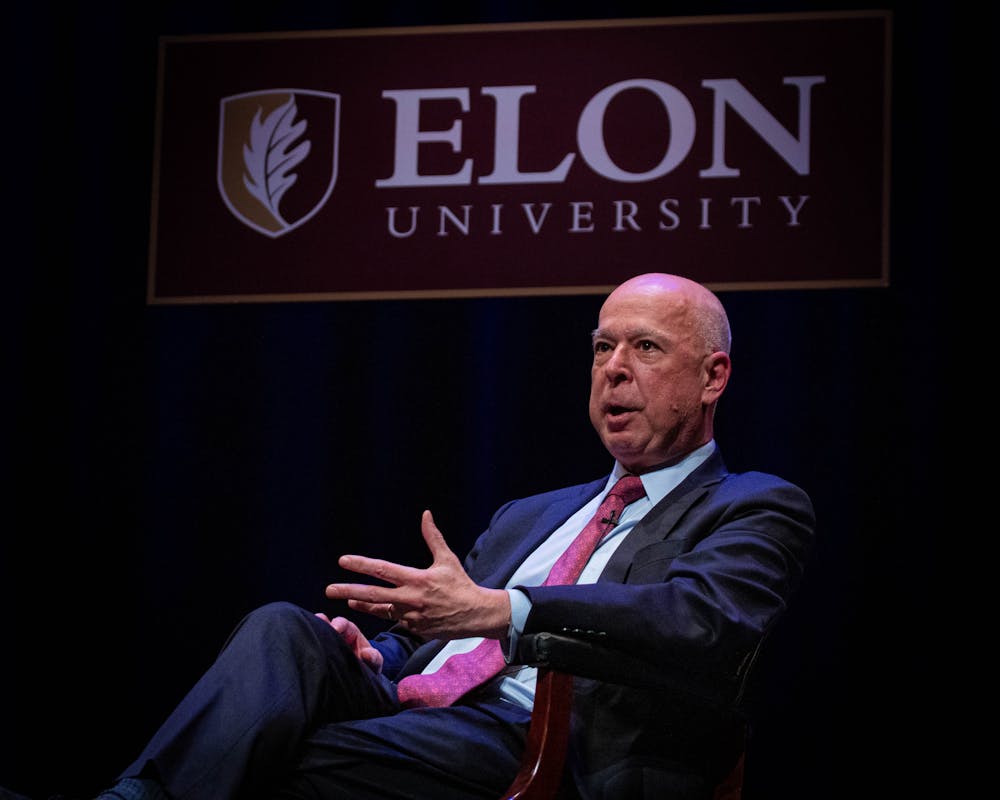New York Times law journalist Adam Liptak spoke to Elon University about how the Supreme Court has changed during his time covering the institution. The event, hosted by the Liberal Arts Forum, was moderated by Elon Law professor David Levine in McCrary Theatre at 7:30 p.m. Wednesday.
Liptak, who teaches at the University of Chicago, New York University and Yale University law schools, last spoke on campus in February 2016.
Liptak said that Justice Ketanji Brown Jackson, who has been on the court since June 2022, is off to a great start.
“She is the first African American woman to serve on the court, and I can tell already that she is a role model to people who didn’t necessarily think there was a place for them on the court of jobs in the government,” Liptak said. “She has evoked this groundswell of enthusiasm.”
Elon sophomore Isabella Hosein, president of the Liberal Arts Forum, said she agrees with Liptak’s views on Jackson. She said Jackson is “interesting” and “great representation.”
Hosein also said she has read a lot of Liptak’s columns in preparation for his speech. She said the article she found most interesting addressed only people from a low number of law schools are nominated to the Supreme Court, which Liptak echoed in his speech.
Liptak said Elon Law School students and their peers deserve spots on the Supreme Court and other federal courts, just like Harvard and Yale law school’s graduates.
“Those are not the only law schools in the world,” Liptak said. “He should cast more widely, there are a lot of good people and a lot of good law schools.”
Liptak began his New York Times career in 2008 with “Sidebar,” a column on legal affairs. A year later, he became their Supreme Court correspondent, writing about issues the court tackles such as affirmative action.
Nicholas Fasan was the youngest person in the crowd for Liptak’s speech. At 13 years old, he said he is obsessed with Liptak’s writing and thinks the Supreme Court is “problematic.”
“There was a web of lies and corruption,” Fasan said. “But at the same time, in the words of Winston Churchill, ‘Democracy is the worst form of government until you look at the others.’”
Fasan added that Liptak’s opinions were effective without being pushy.
“He managed to get his point across without having to push his stance and biases on such a delicate and heavily wounded topic like politics,” Fasan said.


